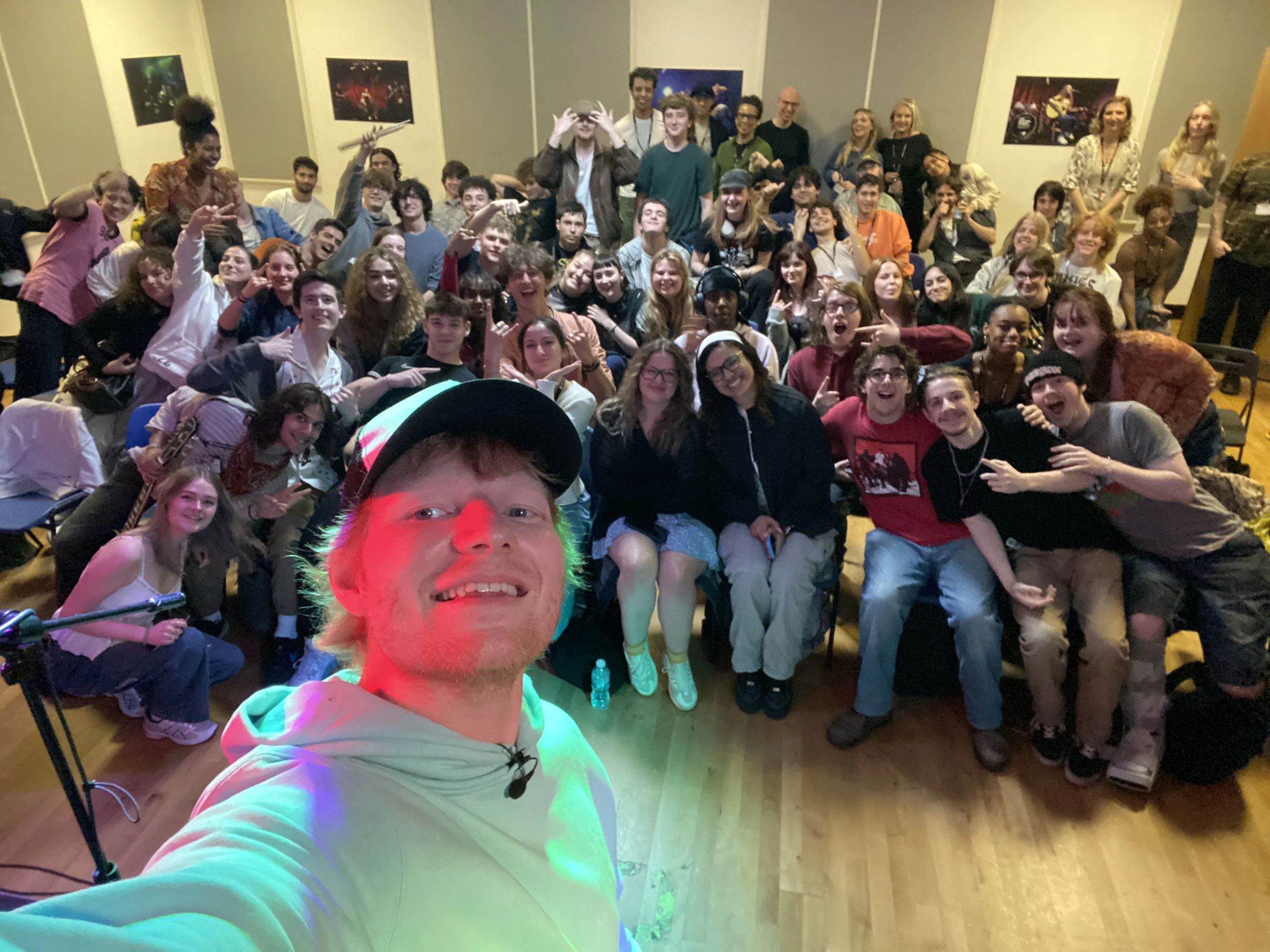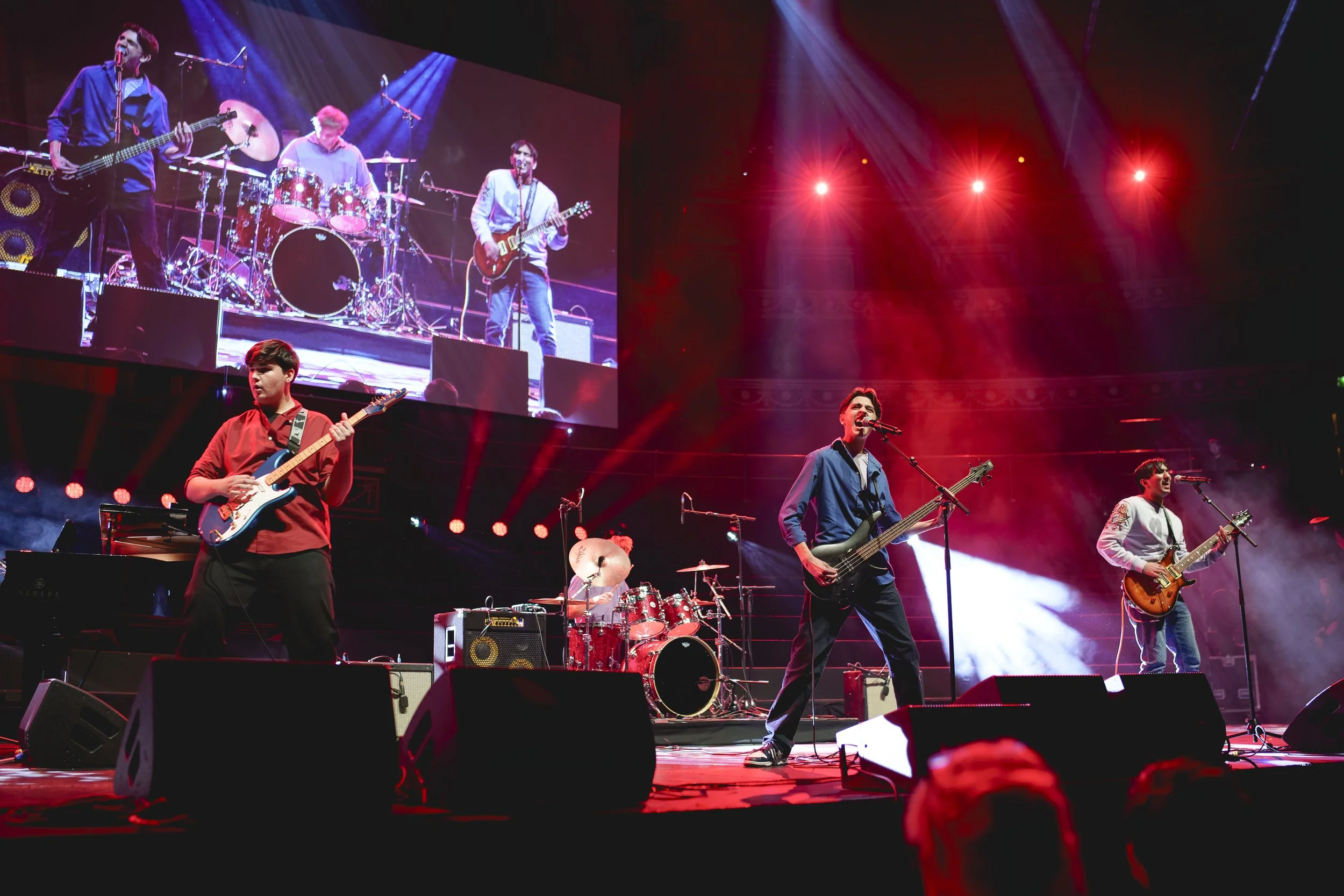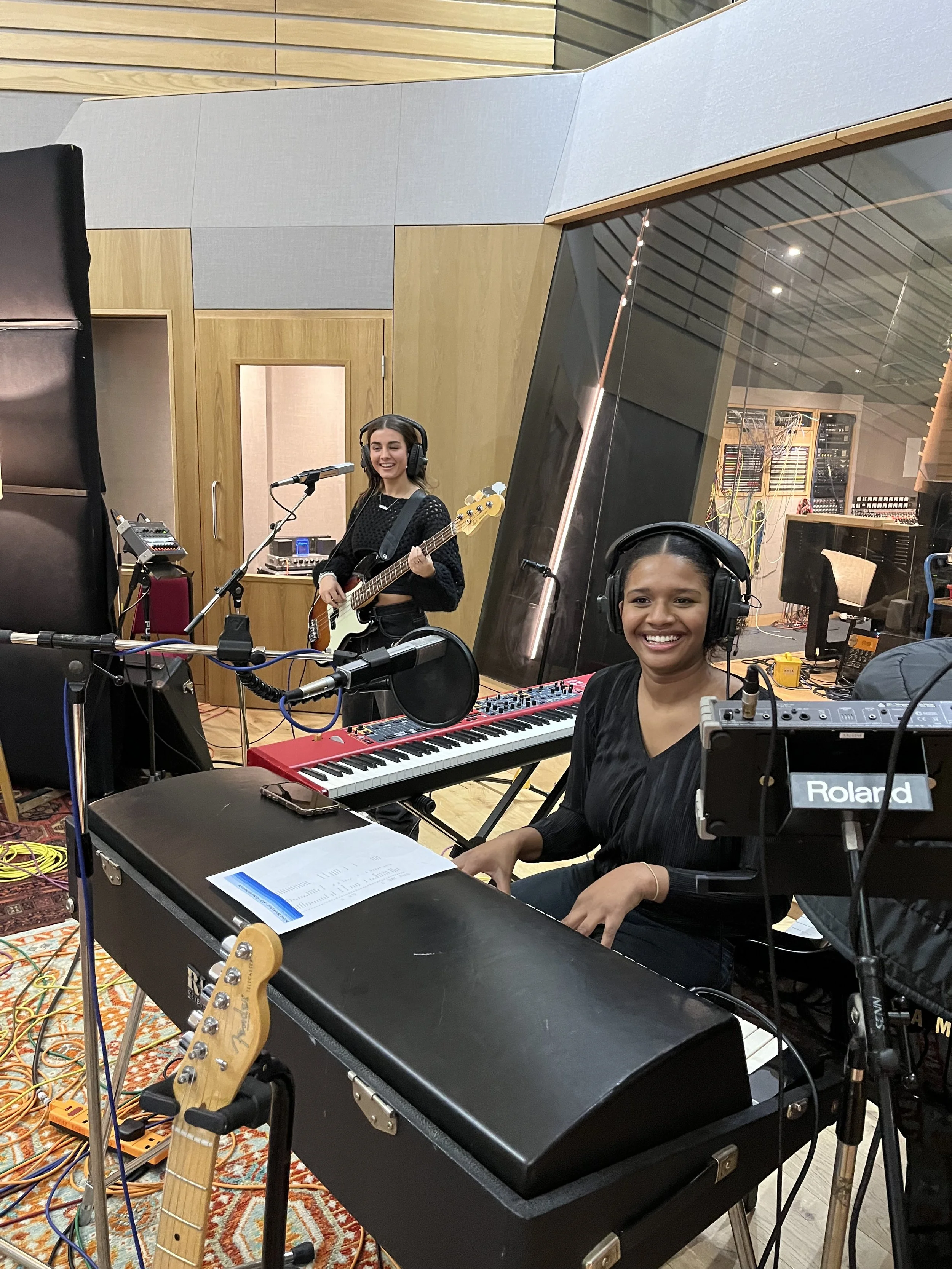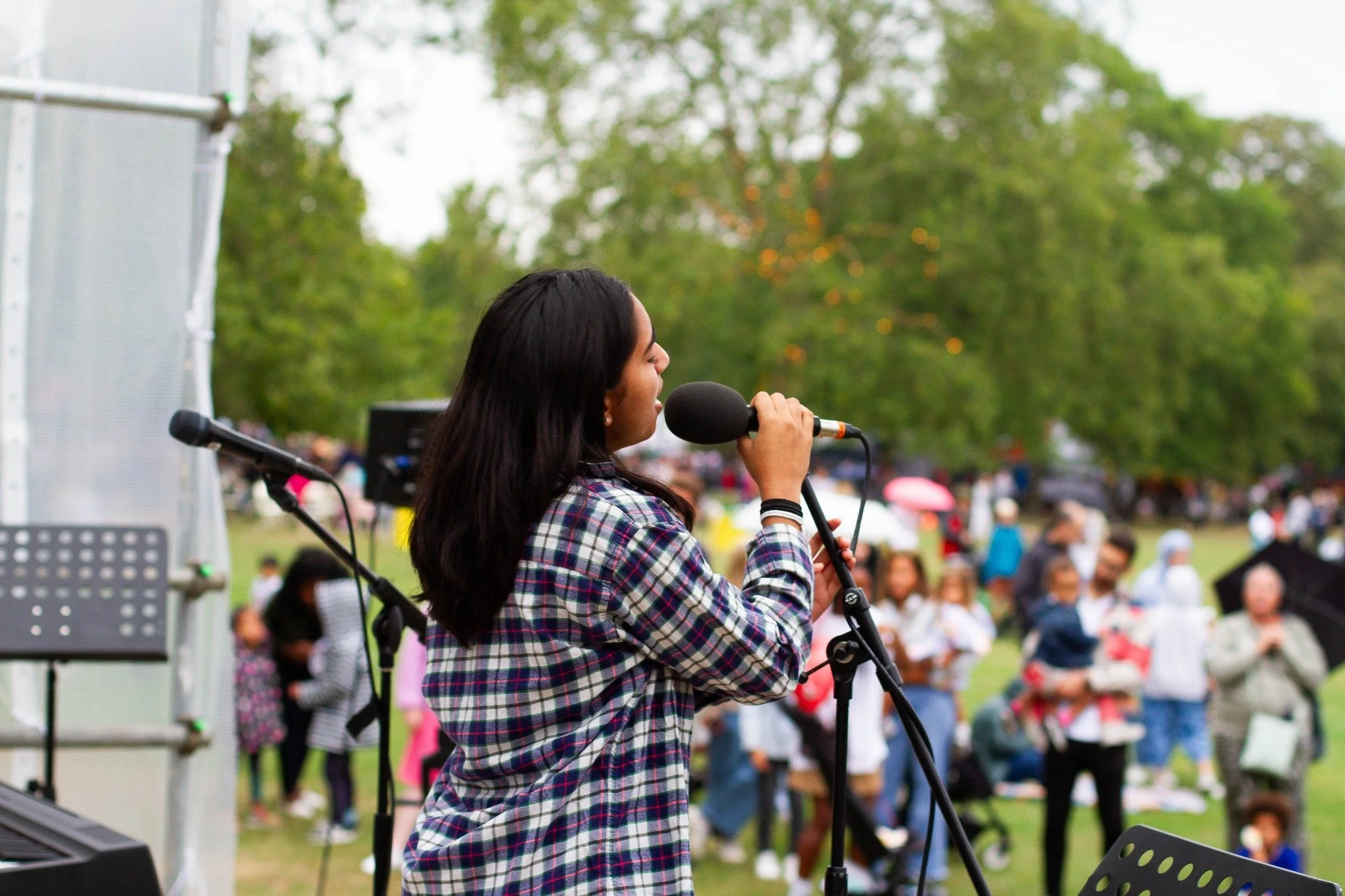One of The Rhythm Studio Foundations week-to-week jobs is providing workshops in a number of different primary schools across the West London area. Spread across each week our teaches travel out to the schools to provide Music education in a variety of ways.
Queen's Park Day 2023
A Conversation With 4. Or Docklands about Music Education, Their Project Origins and 'Now That's What I Call Music!'
4. Or Docklands makes ‘Music For Public Transport Users’, a blend of glitchy Ambient Electronica and Indie Folk on 2021’s ‘Come//Close’ to more jangly Indie Rock on the more recent singles ‘Party Songs’ and ‘U First’. With two weeks to go until The Rhythm Studio Foundation’s fundraising concert, I had the chance to catch up with the main brain behind the 4. Or Docklands project, the extremely talented Jack Coleman.
Jack performing as 4. Or Docklands at The Amersham Arms in December last year (Photo: Charlotte Farnell)
How Did The 4.Or Docklands Project Start?
'4.Or' started like a lot of new-ish projects started-- during Covid! I had picked up guitar a few years earlier when I was 16 and going to North Kent College. At the start I was learning Neutral Milk Hotel and Microphones songs. I quickly started writing my own songs, and I did a few tries at recording music at home using Audacity. It was a mix of simple minimal folky stuff and a bit of ambient noise stuff using my bass (the only thing I could plug in haha), and the effects and chopping tools Audacity had to offer.
I wrote fairly intermittently for a few years, up until the first lockdown where I found myself alone in my student house in Canterbury for about 3 months. I started writing and recording pretty frequently, making demos and experimenting with recording techniques. I think I settled on my artist name around that time too (I took it from a glitched overhead train sign I had seen some months or years earlier).
I finished my first EP ('Come//Close') maybe 6 months later in the winter of 2021.
When Did You Start Playing Music?
I started playing music pretty young. My brother got guitar lessons when I was probably 6-ish, so I think I piggy-backed off of his lessons. I remember vividly wanting to learn a Bionicles theme song.
I moved onto drums at about 10 and then onto bass at 13 which I would identify as 'my instrument', but I really don't play bass much anymore because of this stupid folk singer-songwriter thing I got myself wrapped up in.
Jack and the 4. Or Docklands band featuring Ernesto Moisei and Bradley Ansell (Photo: Charlotte Farnhell)
Where Did Your Interest In Music First Start?
I was obsessed with this Nickleback single, 'Hero' which was on 'Now That's What I Call Music: 51. I remember playing it over and over during car journeys (thanks for allowing me, Mum). From there, the aforementioned Bionicle track, anything from a Sonic OST.
I think because it made me feel so cool. As a terminally uncool child this was huge as it fed my imagination and made me into a serial fantasist, which persists to this day.
I guess I got a more acceptable taste with the CDs we had in the car throughout the mid-late 2000s: The Ashes to Ashes Soundtrack, Red Hot Chilli Peppers (Stadium Arcadium & By The Way), and Cat Stevens Greatest Hits. After that it was the Itunes gallery I inherited from my older brother, which got me into the heavier stuff (System Of A Down, A Day To Remember and Enter Shikari).
So I guess my interest in music was seeded by my family but with absolutely no intentionality whatsoever.
Why Do You Think Music Education Is Important For Young People?
It is important that education for young people is democratised across the board, no matter the discipline, whether it is music, computer science, crochet, or biology. No area of knowledge should be off limits to anyone - if they are passionate about something, young people should be permitted and encouraged to pursue their passion and follow their inspiration.
Music is unique in that it is more often than not a social art form. Music teaches us how to work together and be together. Music education is important for this reason, as it gives young people the tools to better express themselves and as a result collaborate more deeply.
On a more rational and concrete basis, the arts industries are difficult to navigate and are unforgiving for those without the know how (and epecially the 'know who'). Music education can provide that firm base for traversing the art world as a future or current professional, giving young people the confidence to claim their passion and put it into action, which is so crucial.
Jack, Ernesto and Bradley on stage at The Amersham Arms in December 2022 (Photo: Charlotte Farnhell)
Why Do You Think Music Is So Important For Young People?
There's not many things which shape young identities as much as music and its culture does. In contemporary times there aren't many things that young people can use to pin down their sense of identity or create a self-history with. Music can do that and it does it effortlessly, thoughtlessly, humbly and gracefully.
As I mentioned, music is social. Music is one of the few things which can drag young people out of their homes and off their phones. This is important in a post-covid world where many young people have had their youth defined by social isolation.
What Part Of The Rhythm Studio Fundraising Concert Are You The Most Excited For?
I haven't gotten to play with Casual Wednesday yet and it's been a long time coming. She's literally the best - I can't wait.
Catch Jack Doing A Solo 4. Or Docklands Set At The RSF Fundraising Concert On November 15th (Photo: Charlotte Farnell)
If you are interested in seeing Jack perform a solo acoustic 4. Or Docklands set at The Bread & Roses in Clapham on November 15th, you can buy tickets below! You can also catch Carina, Casual Wednesday, Danny Wymbs and Cynics there too - grab your tickets now!














